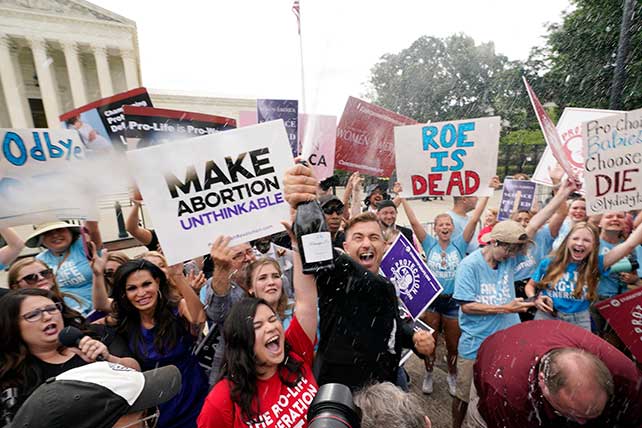The U.S. Supreme Court on Friday overturned Roe v. Wade, the 1973 decision that had provided a constitutional right to abortion. The ruling is expected to lead to abortion bans in roughly half the states, although the timing of those laws taking effect varies.
Some Republican-led states will ban or severely limit abortion immediately, while other restrictions will take effect later. At least one state, Texas, is waiting until after the Supreme Court issues its formal judgment in the case, which is separate from the opinion issued Friday and could take about a month.
RELATED: BREAKING: Supreme Court Overturns Roe
In anticipation of the decision, several states led by Democrats have taken steps to protect abortion access. The decision also sets up the potential for legal fights between the states over whether providers and those who help women obtain abortions can be sued or prosecuted.
Here is an overview of abortion legislation and the expected impact of the court’s decision in every state.
ALABAMA
Political control: Alabama has a Republican-controlled legislature and a Republican governor who want to ban or restrict access to abortions.
Background: In 2019, Alabama lawmakers approved what was then the most stringent abortion ban in the country, making it a felony to perform an abortion at any stage of pregnancy with no exceptions for pregnancies resulting from rape or incest. The only exception would be when the woman’s health was at serious risk. A federal judge issued an injunction, under the precedent of Roe v. Wade, blocking the state from enforcing the law. In 2018, voters agreed to amend the Alabama Constitution to say the state recognizes the “rights of unborn children” and “does not protect the right to an abortion or require the funding of abortion.” A 1951 law made it a crime, punishable by up to 12 months in prison, to induce an abortion, unless it is done to preserve the life or health of the mother.
Effect of Supreme Court ruling: Abortions became almost entirely illegal in Alabama on Friday. A 2019 state abortion ban took effect making it a felony to perform an abortion at any stage of pregnancy, with no exceptions for pregnancies caused by rape or incest. All three clinics stopped providing abortions Friday morning under fear of prosecution under the 1951 state law. U.S. District Judge Myron Thompson hours later granted Alabama’s request to lift an injunction and allow the state to enforce the 2019 abortion ban. Alabama Attorney General Steve Marshall said it is now a felony to provide an abortion in Alabama beyond the one exception allowed in the 2019 law, which is for the sake of the mother’s health. Doctors who violate the law could face up to 99 years in prison. Marshall said the state would also move to lift other injunctions that blocked previous abortion restrictions, including a requirement for doctors who perform abortions to have hospital admitting privileges.
What’s next: Some Republican lawmakers have said they would like to see the state replace the 2019 ban with a slightly less stringent bill that would allow exceptions in cases of rape or incest. Proponents said the 2019 ban was deliberately strict in the hopes of sparking a court challenge to Roe.

